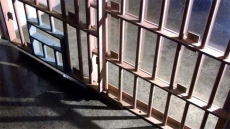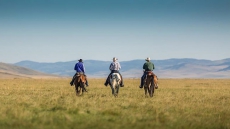BURNABY, B.C. - Just days before she hanged herself in December 2013, Lucia Vega Jimenez cut fruit and chatted about international Christmas traditions with inmates inside a maximum-security women's prison east of Vancouver.
The 42-year-old Mexican national was also phoning legal aid daily, growing tense and losing her appetite for lack of a lawyer, as the deadline loomed for a crucial document to fight a deportation order.
Two foreigners incarcerated with Jimenez at Alouette Correctional Centre for Women described her deteriorating demeanour to a coroner's jury Monday, saying their friend eventually revealed she feared being killed if ejected from Canada.
"She was thinking that she was going to go to Mexico and be tortured to death," said Barbara Dennis, an American citizen awaiting extradition who also served as the prison unit's representative.
Jimenez never specifically divulged who might be after her, but based on their conversations Dennis believed the terror stemmed from a Mexican gang or drug cartel.
"I think she saw that maybe an easier way out would be to try to commit suicide and die here," Dennis testified by videolink. "As a Catholic woman that is a huge decision to make because it has eternal consequences."
Jimenez was arrested Dec. 1 and taken into the custody of the Canada Border Services Agency after being stopped for fare evasion at a downtown Vancouver SkyTrain station. But the inquest heard she was not able to retain a lawyer until Dec. 13.
That gave her five days to complete an all-important Pre-Removal Risk Assessment, the key to unlocking more time to contest her deportation order. Dennis said she had helped Jimenez prepare for the rigorous submission, but never learned why it wasn't filed.
As a result, Jimenez was transported to the Vancouver airport's holding cells. She was found hanging inside a shower stall the morning of Dec. 20. She died in hospital Dec. 28.
The woman's death, while under watch of a private security company contracted by the border agency, only became public after members of the Mexican community went to media.
The public inquest was called two months later. The jury of three men and two women is tasked with making recommendations to prevent similar deaths, but may not assign blame.
Claudia de Assumpcao, another inmate who testified from the prison, was asked by a lawyer if Jimenez ever explained why she waived her right to the pre-removal assessment.
Both Assumpcao and Dennis were surprised by the assertion.
"She was fighting for a stay in Canada," Assumpcao said.
A CBSA officer tasked with enforcing removal orders told the inquest Jimenez's lawyer did not submit the crucial document by deadline. Raman Vandher said Jimenez's lawyer indicated that her client decided against proceeding.
More testimony from Vandher is expected Tuesday.
The inquest heard earlier that Jimenez was deported from Canada previously after making a refugee claim that was denied.
"I asked her how and where she came to Canada. She said she came through the bushes in Surrey somewhere. She wasn't exactly sure," said CBSA agent Josie Perri, who initially took Jimenez into custody after a call from suspicious transit police. "She snuck into Canada illegally."
Perri told the inquest a CBSA database showed the woman had tried to rectify her failed refugee claim by applying for a visa at the Canadian consulate in Mexico City. She was denied, in part, because Jimenez had not disclosed that she previously worked in Canada and also provided misinformation about being employed in Mexico. She returned by her own means in April 2013.
Jimenez told Perri she had a mother and five sisters back in Mexico, the agent said, but the woman had described an abusive boyfriend back home and said she preferred living in Canada.
As the inquest began, a group of two dozen immigration advocates and friends of the woman waved signs and chanted "No more deaths" outside the Burnaby, B.C., office tower where the inquest is being held.
Oscar Leal, who became a friend of Jimenez the first time she was in Canada in 2007, described her as a very nice person.
"Lucia was not a criminal," he said. "She was just trying to make a life here, trying to find a job, helping her family out in Mexico."





